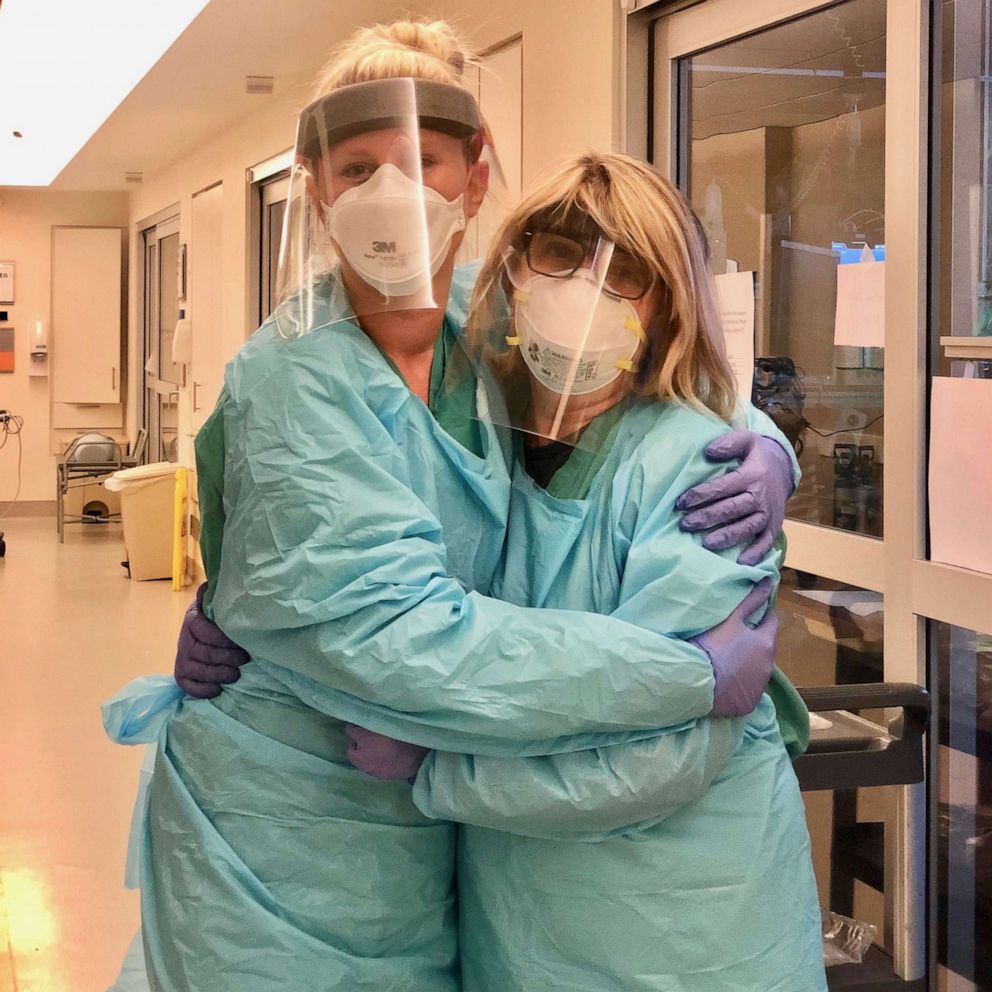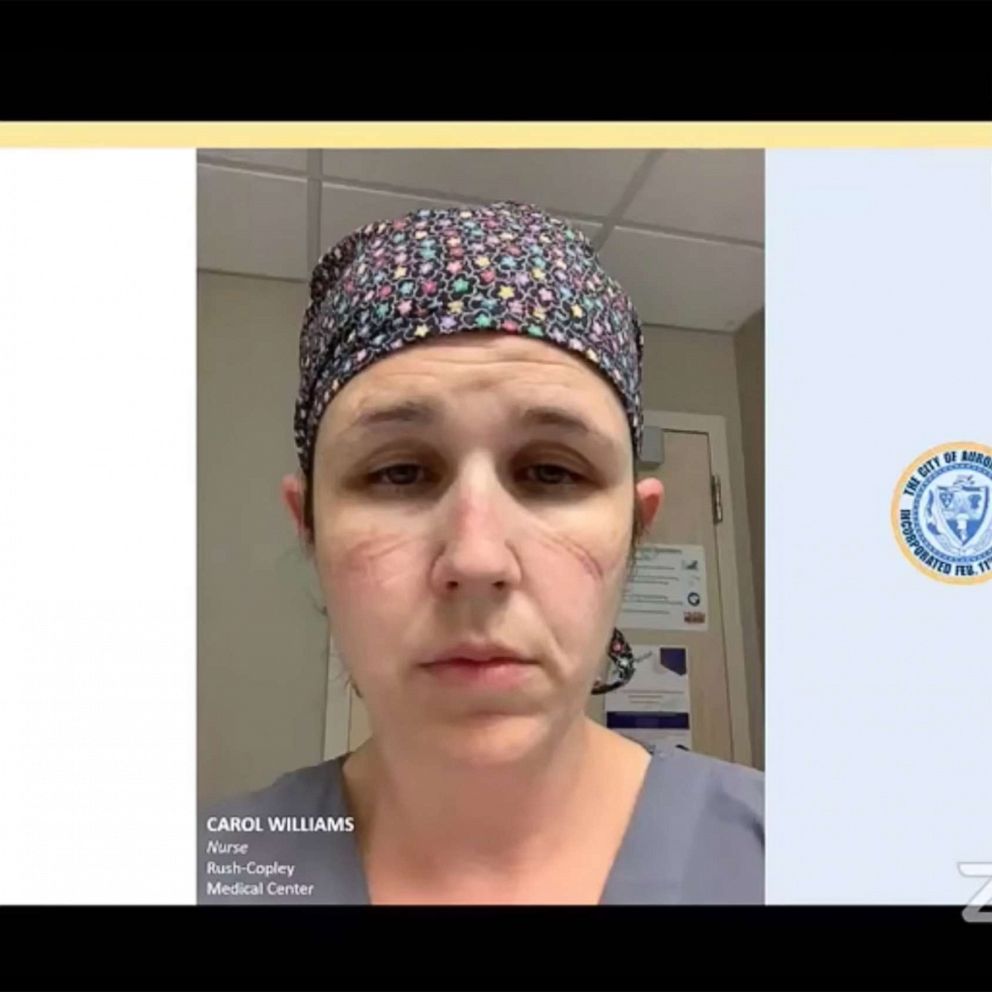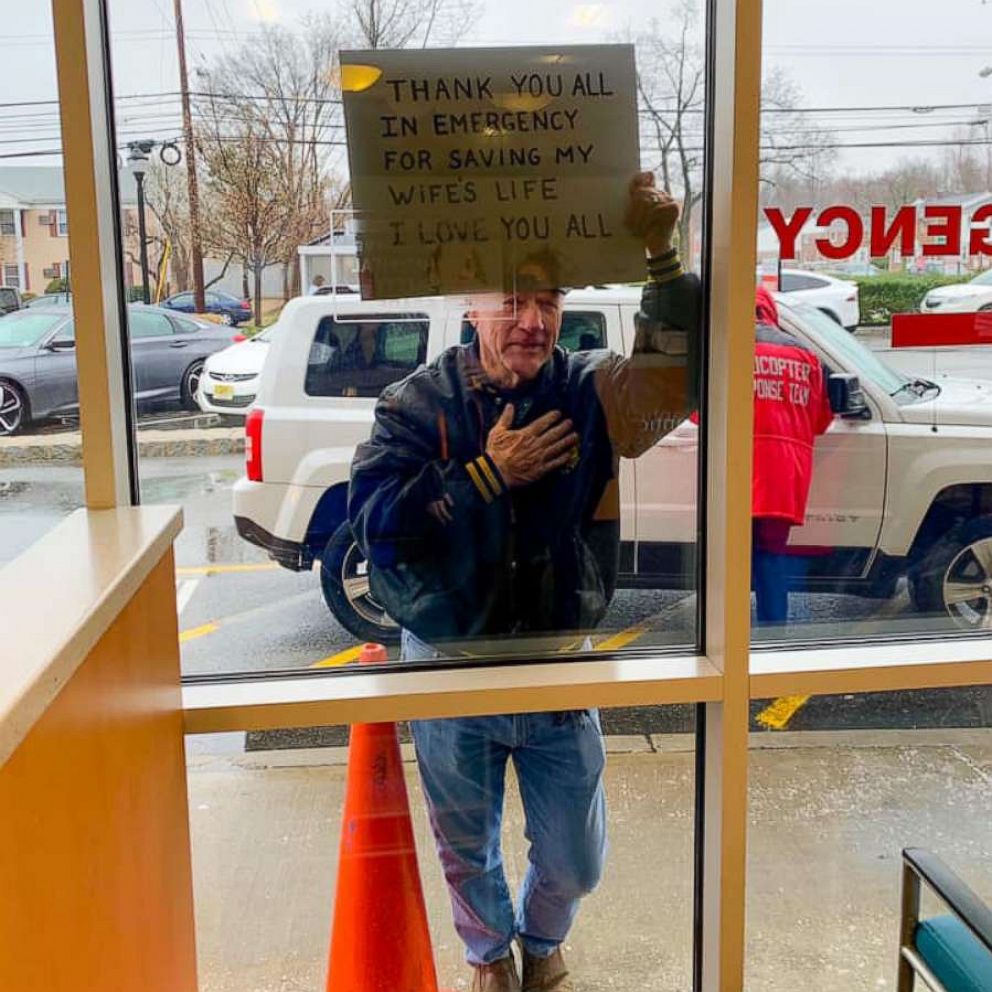Nurses, doctors use social media to plead for public to take COVID-19 seriously as cases surge
"We are physically, socially and mentally exhausted."
As the number of COVID-19 cases continue to spike across the country and hospitals become full, nurses and doctors are taking to social media to beg the public to take COVID-19 seriously and follow safety guidelines.
"We are physically, emotionally and mentally exhausted," Dr. Kate Grossman, a pulmonary and critical care physician in Columbia, Missouri, wrote in a message shared on Twitter.
"I have seen so many emergent intubations. I've seen people more sick than I've ever seen in my life," Lacie Gooch, an intensive care unit nurse at Nebraska Medicine in Omaha, said in a video that Nebraska Medicine shared on Twitter this week.
Gooch, 25, is a cardiovascular ICU nurse who has been working shifts in her hospital's COVID-19 ICU since April.
She described a sense of frustration and exasperation at the disconnect between what she and her colleagues are doing to save lives inside the hospital, and what some people are doing to flaunt safety guidelines outside the hospital.
"We're tired. We're understaffed. We're taking care of very, very sick patients and our patient load just keeps going up. We're exhausted and frustrated that people aren't listening to us," said Gooch, who said she has patients who don't believe in COVID-19 even as they are hospitalized for it. "It kind of blows my mind and it's frustrating."
Gooch recalled driving to the hospital one night for an overnight shift and passing a car festival that was packed with people, most not wearing masks.
"I was just shocked and it was infuriating," she said. "It just kind of feels like a slap in the face to all the hard work that we're doing."
Nine months into the coronavirus pandemic, the United States remains the worst-affected nation, with about 12 million diagnosed cases of COVID-19 and over 250,000 deaths.
The U.S. Centers for Disease Control and Prevention have recommended mask wearing, hand-washing and social distancing to prevent the spread of COVID-19, but not all state and local governments, nor private businesses, follow those guidelines.
Grossman, a mom of two who works with COVID-19 patients in the ICU, described the situation she sees by simply saying, "People don't get it."
"Nurses and nurse practitioners and [physician assistants] and doctors and respiratory therapists who are in the hospital, we see it," she said. "And it is so disheartening and demoralizing to leave work and just not see it, to see people gathering and talking about their Thanksgiving plans and travel plans, to see people waiting in a line outside a bar to get in when you're driving home after a horrible day. It's so upsetting."
Grossman shared her experience as a health care worker on the front lines in response to a question from her childhood best friend, actress and author June Diane Raphael, about how she was doing. Raphael then shared Grossman's text, with her permission, on Twitter, where it has more than 60,000 retweets.
"I asked her how she was doing and the text that I got back just gutted me," said Raphael. "I could hear in her voice over text message that my friend is really going through it and really being traumatized by this health care situation that we've never been in before."
"When [Grossman] put her feelings out there, I really wanted to share it," she explained. "It really is up to all of us, with our platforms or even our own family members, to spread the word about how we can keep each other safe and healthy."
Grossman said she wants people to know that health care workers are doing all they can to help patients, but they need support from the entire community. She pointed out that health care workers like herself are also moms and dads whose kids are home doing remote learning and daughters and sons who miss visiting their parents and siblings.
Many of them will also be working over the holidays and will not travel to visit family and friends, following CDC guidance for all Americans to not travel for Thanksgiving this year.
"I leave work and I go home and I have a ninth grader at home who would love to be back in person starting high school and I have a 3-year-old to get to bed and I have a partner who is somehow keeping our house going while she works full-time and has a demanding job," said Grossman. "That's everyone in health care right now."
Grossman said she too has had experiences with patients where their first realization of how serious COVID-19 can be is when they're being taken to the ICU, or when she has to phone patients' families and its their first realization too.
That experience drove Ashley Bartholomew, an ICU nurse in El Paso, Texas, to take to Twitter to share her conversation with a patient who questioned whether those in the hospital were really dying of COVID-19.
"I'm brutally honest. I tell him in 10 years of being a nurse I've done more CPR and seen more people die in the last 2 weeks than I have in my entire career combined," she wrote on Twitter.
Bartholomew, a mom of three kids ages 7 and under, said she had to resign from her nursing job because of family logistics, but she stayed on an extra three weeks in the role this month to help with the rising COVID-19 patient load in the ICU.
While describing being a COVID-19 nurse as a "physically draining and mentally and emotionally draining" job, she also expressed feelings of defeat and frustration over people not taking the virus seriously.
"We're called heroes in the springtime and then by fall people are questioning what we're trying to say," said Bartholomew, referring to the beginning of the pandemic when people would stand outside and clap and cheer for health care workers. "It makes me feel defeated and it makes me feel scared."
Bartholomew said she worries that if people don't believe medical professionals about COVID-19 now, they may also not believe the science when a vaccine becomes available.
"That's our one glimmer of hope for the future," she said of a potential vaccine. "Trust the professionals that you've trusted for decades in your most vulnerable moments."
This report was featured in the Monday, Nov. 23, 2020, episode of “Start Here,” ABC News’ daily news podcast.
"Start Here" offers a straightforward look at the day's top stories in 20 minutes. Listen for free every weekday on Apple Podcasts, Google Podcasts, Spotify, the ABC News app or wherever you get your podcasts.







